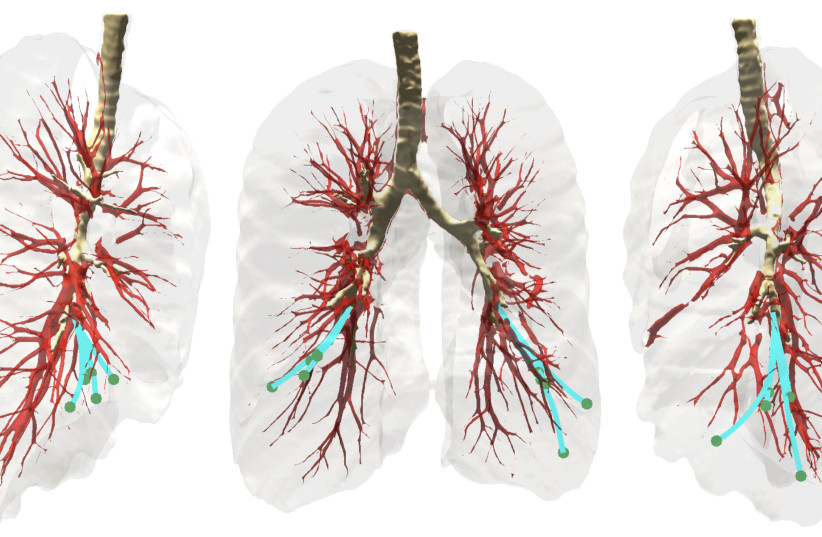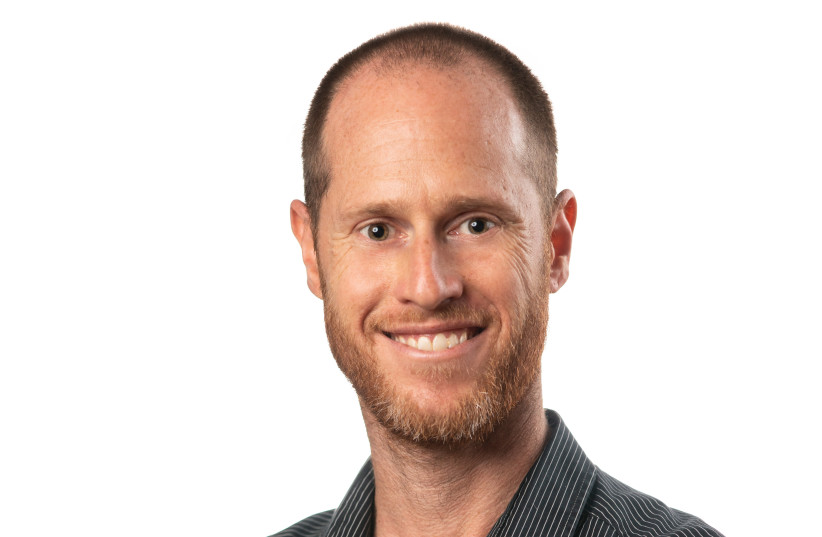Technion and UNC researchers develop algorithm for automated surgery
The Technion's Dr. Oren Salzman and Prof. Ron Alterovitz and Mengyu Fu of UNC developed an algorithm to safely steer surgical needles along computer-mapped trajectories.
By JERUSALEM POST STAFF
, OCTOBER 8, 2021

Three views of the lung environment. The needle
steers to targets (green) while avoiding anatomical obstacles including
large blood vessels (red), bronchial tubes (brown) and the lung boundary
(gray). (photo credit: COURTESY TECHNION)
Researchers from the Technion and the University of North Carolina (UNC) developed an algorithm that safely moves surgical needles along 3D-mapped trajectories.
Procedures
such as certain cancer therapies and biopsies require a needle to be
moved inside the body without damaging other tissues, a difficult
process that is further complicated when the target is located behind
those tissues or other obstacles.
Innovations such as bevel-tipped needles intended to simplify such
procedures are, nevertheless, complex to use and require a precise
surgeon to manually perform the operation, unless assisted by "motion
planning algorithms," which steer the needle automatically. It is often
difficult to gain regulatory approval for such algorithms, as the
procedures they are used in are risky and require extreme precision.

Dr. Oren Salzman of the Taub Faculty of Computer Science at the Technion. (credit: COURTESY TECHNION)
The researchers, Dr. Oren Salzman of the Taub Faculty of Computer
Science at the Technion and Prof. Ron Alterovitz and Mengyu Fu of UNC,
developed one such algorithm that performs calculations more quickly
than others and "guarantees" that the needle will reach the relevant
part of the body without damaging other tissues, alerting the surgeon if
there is no safe path.
The
project was funded by the Binational Science Foundation, the US
National Institutes of Health and Israel's Science and Technology
Ministry.
PLEASE RECOMMEND THIS PAGE AND FOLLOW US AT:

No comments:
Post a Comment
Stick to the subject, NO religion, or Party politics